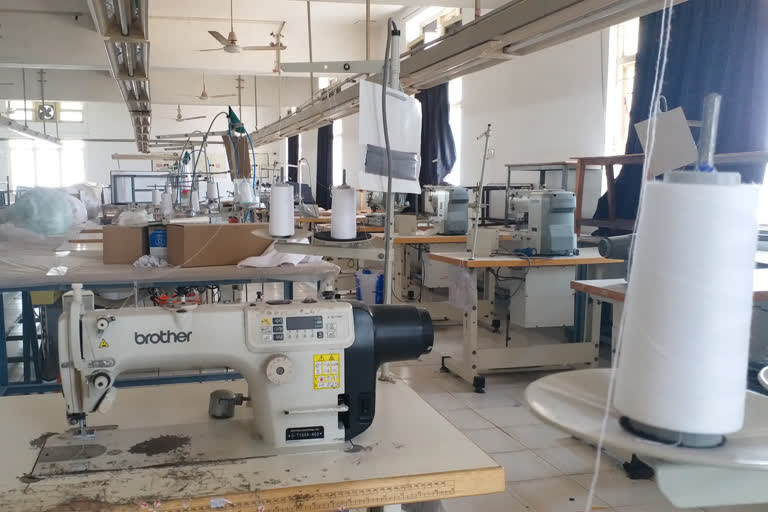Chennai: Tiruppur is India's pioneer city in the knitwear business with foreign exchange earnings of over Rs 26,000 crore a year through exports and Rs. 18,000 crores in domestic production in the knitwear sector. This industry has been worst hit by the corona impact.
As knitwear products worth ₹6000 crores exported from Tiruppur in early March, have got stranded until now in various ports in Europe, Australia and the United States due to curfew imposed in various countries of the world, the demand for knitwear clothing in the present scenario has seen a historical fall by more than 80 per cent.
Due to this, a serious problem has risen in receiving money against orders worth Rs 6,000 crores. As stores are closed and there are no sales, some foreign companies have even cancelled import orders.
Similarly, as foreign companies are scrambling to ship, there are strict instructions from other countries that the works in Tirupur be stopped and it is enough if minimal goods are sent that too, two months later. Therefore manufacturers in the sector expressed concern that the condition of ready-to-wear knitted goods produced to the tune Rs. 10,000 crores are in question.
Regarding this, Exporters Association President Raja Shanmugam said, “In the present scenario, even if the curfew is lifted, the producers say with concern that it will take minimum 6 months to one year to start and restore production to the normal level.
In the current crisis, people all over the world are spending much on food and clinical materials. Even otherwise if restored, the demand for food will only remain prominent.
Also read: After Amit Shah's assurance, IMA drops protest plan
Consumption demand of knit-wear will be totally affected. The impact will affect not only the industry but also the labourers, and cause various indirect chain reactions, such as unemployment.
It is impossible for the government to continue providing financial aid to workers and the economically weaker sections. Therefore, if the government promotes industry, employment opportunities will increase and the economy of the country too will improve.
Unemployment risk can be avoided if the government takes measures on bank loans taken by Industries by lowering the interest rates and subsidizing interest rates.
Implementing this may reduce the financial burden of industrial establishments. Likewise, new capital lending will help knitwear companies to continue operations.
Apart from this, the government should extend financial help to the labourers through the employee state insurance scheme initiated for their welfare. The exporters have cautioned that the state can be saved from a big disaster if the government pays need to their pleas.



